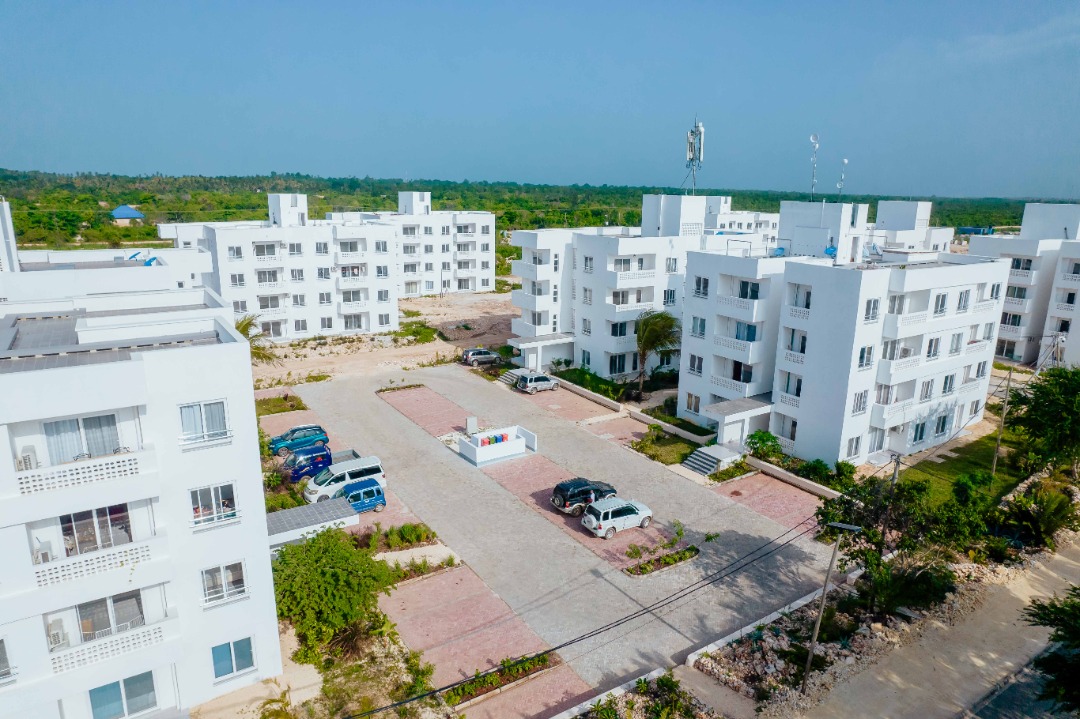High profit Opportunities in Real Estate

With a rapid population growth, urbanization, a burgeoning middle class, increased foreign investment and infrastructural developments. Africa’s real estate sector presents untapped opportunities for investors. Despite having 15% of world fast growing population, the value of Real Estate market in Africa is projected to reach $200 billion by 2025 which is around 1% of global market.(Knight Frank)
PwC expects that the African real estate market will grow at an annual rate of 6.4% between 2020 and 2024.There is an urgent needs to build 4 million housing units annually to meet demand, with a total investment requirement of $2.3 trillion over the next decade.(Afdb)
Africa has the fastest-growing middle class in the world (around 350 million people to join the middle class by 2025 with a combined spending power of $1.3 trillion ) refer to Afdb and World Bank. The rapid urbanization means more people are moving from rural areas to cities which create a growing demand for housing in major cities such as Lagos, Nairobi, Dar es Salaam, Kampala, Accra, Kinshasa, Abidjan, Luanda…
The Infrastructure Development (roads, bridges, airports, public transportation…) improve accessibility and connectivity within and between cities, and opening up new real estate investment opportunities.
There are opportunities in areas such as affordable housing, hospitality, residential properties, apartments, office spaces, co-working spaces, data centres, conference centres, students accommodation…This growing middle class also creates demand for higher quality housing, commercial real estate, luxury housing, retirement homes for elderly population…
What are the challenges? Which country has the best return on real estate? Nigeria, Kenya, Tanzania, Ghana, Uganda, Congo DRC, Rwanda, Ethiopia, South Africa, Côte d’Ivoire…?
Before we answer that question, investors should understand that there are 54 African countries, diverse markets. Some markets are less promising due to: lack of essential infrastructure, stagnant or declining population, accessibility challenges, weak demand, slow appreciation, uncertain government policies which hinder investment potential. Others are promising markets: with high occupancy rate, rising housing demand, increasing property values in key areas, good government initiatives, robust infrastructure, population growth, global accessibility, offering diverse investment opportunities with competitive yields.
Among the 54 African countries, a promising market should tick the boxes: Political stability, economic growth, infrastructure development, demographics, government policies : relax regulations, tax incentives, location, legal system (investment protection).
To illustrate a promising market, let’s look at Tanzania: the country tick many boxes on economic growth, population growth, rising housing demand, rapid urbanization, burgeoning middle class, government initiatives, infrastructure development, high return on investment, investment protection, political stability…
The Housing demand is 200,000 units annually ($12 billion estimated cost) with a housing deficit at 3 million units around $180 billion (Tanzania Ministry of Lands, Housing and Human Settlements Development). In Dar es Salaam, the economic capital, a 3-bedroom residential property located near a beach or in a prime location is priced between US$300,000 to US$500,000.
In posh areas such as Mikocheni, Masaki, Oyster Bay…a 2 bedroom fully furnished apartment monthly rent is around $3000-$8000. Other areas out of Dar es Salaam 3-bedroom houses are priced starting US$50,000. High grade office space at around $21 per square metre, low grade $16. Office rental is around $31-$40 per square meter in Dar es Salaam (Citizen 2021)
Why invest in Tanzania Real Estate?
Tanzania is a stable country, the heaven of peace and security.
60% of Tanzanian population average age is 19 years old.
Goverment is investing a lot in infrastructure.
Tourism potential: Tanzania plans to attract five million visitors by 2025 from 3.8 million in 2023.
Increased FDI after the discoveries of oil & gas, minerals: investors and expats need residential homes…
Tanzania targets $15 billion FDI by 2025 from $5billion in 2023
Huge capital appreciation and return on investment between 5 to 9% yields.
Tanzania has approved a new residence permit law for real estate investors: Resident Permit CLASS A – C 11 for anyone investing above 100,000 USD!
Diverse opportunities: residential, commercial, industrial, agricultural properties in Dar es Salaam, Mwanza, Zanzibar, Arusha, Kilimanjaro ,Dodoma, Mafia…depending on your goals.The demand for housing, both for rental and purchase is growing.
Key points about Tanzania:
* Tanzania’s real estate sector contributed 3.1% to the country’s GDP with USD 1.5 billion in 2019, compared to USD 1.2 billion in 2015 (Tanzania Invest )
* Tanzania officially upgraded from low-income to middle-income classification in 2020. The economy grew by 7% in 2018. The GDP increased by 4.9% in 2021 from 4.8% in 2020. The inflation rate remains the lowest, least volatile in the EAC. In November 2021, the inflation rate was 4.1%, its highest level.